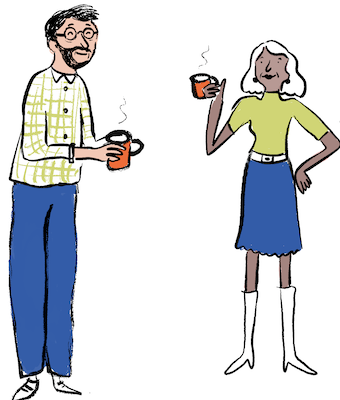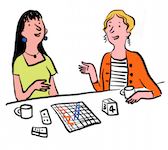The Mentors support our In-School Volunteers with practical advice on helping children with maths. There are several aspects to the role. You can choose to engage in all or only some of these:
Support through the school year. The Mentor supports our In-School Volunteers at one or more of our partner schools. You will meet your volunteers at the start of the school year, either in-person or remotely, and you will arrange periodic contact through the year. Volunteers will, from time to time, contact you with questions, such as how to work with a specific child or how to structure a session to help a child with a particular skill.
Training: We train our In-School Volunteers before they start in a school. The Mentors develop and run the training, which gives the volunteers basic knowledge about young children, school maths for that age, and how to help children learn. The centrepiece of the in-person training session is the use of manipulatives to represent maths concepts, with the volunteers getting hands-on experience. The goal of the training is that the volunteers will be able to access resources and advice and will be confident in working with children.
Visiting volunteers in schools. During the year, Mentors can join each volunteer in a session with a child to give them support. This can include, for example, showing a technique beforehand which the volunteer can practise with the child. The goal is for the Mentor to act as a ‘personal trainer’ to help the volunteer improve their skills.
Developing resources: The Mentors identify online resources or develop new resources to support our In-School Volunteers in their work with children. We make these available on our website so that they are easily accessible, both to our volunteers and to a wider audience.



